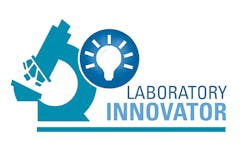In my experience, all laboratories share one common goal: To provide the best patient specimen testing within their scope of services. This scope of service may range from a major multi-specialty hospital laboratory to a single-specialty Mohs surgery office laboratory. Because ACHC laboratory accreditation covers all levels of testing complexity and all clinical settings from point-of-care waived tests performed in a physician’s office to high-complexity testing in independent or hospital-based laboratories, I’ve been afforded the opportunity to see a wide range of settings as an ACHC Surveyor. My greatest lesson learned from the experience of conducting accreditation surveys is that the best laboratories have a strong leadership presence that fosters excellence in teamwork. Knowledgeable and dedicated laboratory leaders bring the vision and guidance that are key to achieving the laboratory’s goals. Their leadership strengths filter down to the laboratory team members to support and enhance team collaboration. It is always a privilege for ACHC to be invited to partner with these laboratories on their compliance journey.
What do you enjoy most about being a Laboratory Specialist with ACHC?
I enjoy being a part of an organization that is dedicated to delivering the best laboratory accreditation experience through a partnership philosophy. ACHC’s education-first approach helps maximize a laboratory’s ability to deliver healthcare excellence. Our accreditation standards align directly with CLIA requirements, which ensures regulatory compliance. We add more by being a team of dedicated subject matter experts with decades of laboratory experience. It is an incredible gift to be instrumental in supporting a laboratory’s commitment to continuous quality improvement for the patients it serves.
In our recent salary survey, the majority of MLO readers shared that the current shortfall of medical personnel has had a moderate-to-large impact on their lab’s operations. How has ACHC seen laboratories addressing shortages of staff?
The current shortfall of laboratorians is definitely a topic of concern and conversation in the laboratories I have surveyed. Laboratory leadership is feeling this shortfall in large and small systems across the country with small-town rural hospital laboratories being especially vulnerable. In these settings, the absence of even two laboratory team members can have a major impact on the lab’s operation. That said, I have seen these resilient smaller laboratories address staffing in some very innovative ways, for example, the recruitment of highly qualified and skilled medical laboratory technicians from other countries and the consolidation or outsourcing of some laboratory services and processes. Overall, the consensus in the field is that there is no quick solution to this medical personnel shortage and each laboratory will need forward-thinking leadership to address its specific needs.
What do you see the future laboratory looking like?
The current laboratory staffing issues coupled with emerging testing innovations will drive the future laboratory environment. I envision laboratories of the future increasing the use of automation, molecular diagnostic platforms, and digital pathology. The future is challenging to forecast, but I am confident that laboratories will continue to advance and evolve, and our industry will look very different in the next ten years.
Do you have a particular past lab survey that stands out in your mind?
More than one stands out! What those that come to mind first have in common is active involvement of the entire leadership team from the CEO to the assistant laboratory manager. I’ve witnessed evidence of this engagement through interaction by each team member beginning with the survey’s opening conference and continuing to our exit conference. To the surveyor, this demonstrates a solid commitment to the laboratory as a whole as well as to the accreditation process. These surveys tend to go very well and conclude with an unequivocal accreditation decision because of the leadership’s direct involvement with the laboratory professionals. Through this involvement, they understand the needs and are able to consistently provide the resources for the laboratory to achieve its goals as a whole and for each individual team member to grow their own skills and knowledge.


